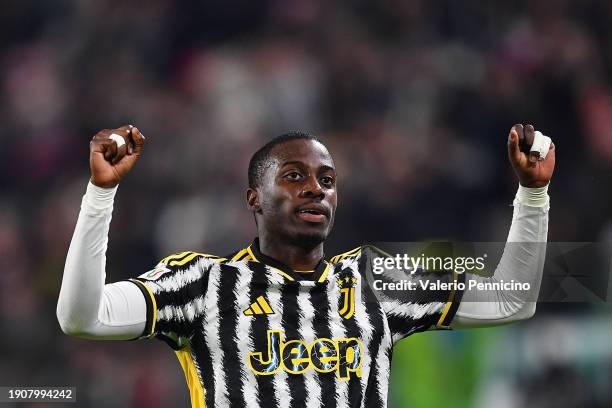Football transfers, much like complex geopolitical negotiations, are rarely simple. Beneath the surface of player valuations and club ambitions often lies a labyrinth of personal agendas, financial intricacies, and, occasionally, outright animosity. The ongoing saga surrounding Timothy Weah`s potential move from Juventus to Olympique Marseille provides a potent illustration, with the player`s agent publicly escalating the dispute with astonishing candidness.
The Agent`s Unfiltered Accusations
Badou Sambague, the representative for American winger Timothy Weah, has launched a scathing attack on the Juventus management, specifically singling out an unnamed director for allegedly sabotaging his client`s career and impeding his transfer. This isn`t Sambague`s first salvo; he previously accused the club of treating Weah like a “puppet.” His latest statements leave little to the imagination:
“There is someone who is creating problems. The Juventus sports department is managed by three people: two have class, while another is still finding his way. We won`t blame him for that. Two are looking for solutions, and one is creating problems, and we cannot allow that.”
Sambague further alleges that this problematic director not only excluded Weah from the Club World Cup, effectively “ruining it” for him, but also attempted to coerce the player into a move against his will. Now, the agent claims, Juventus is demanding an “exorbitant” fee for Weah`s transfer out of sheer “revenge,” stubbornly holding out for a Premier League offer that, according to Sambague, “will never arrive and that we will never accept.” This bold public declaration, he asserts, was a necessary step to counter “unacceptable” disrespect.
The Financial Chess Match
At the heart of the impasse lies a five-million-euro valuation gap. While Olympique Marseille has reportedly reached an agreement on personal terms with Weah and tabled an offer of €15 million for his services, Juventus remains steadfast, demanding €20 million. The narrative here is one of shifting financial leverage. Just a month prior, Juventus might have been more amenable to a lower combined fee of €22 million for Weah and fellow prospect Mbangula to Nottingham Forest, primarily to secure crucial capital gains by the end of June. However, a subsequent €15 million capital injection from Exor, the club`s holding company, appears to have alleviated any immediate financial pressure. With less urgency to offload players, Juventus now seemingly feels empowered to demand their full asking price, much to the agent`s chagrin.
The Overlooked Protagonist: Agent Commissions
While Sambague points fingers at Turin`s alleged pettiness and vindictive tactics, an interesting counter-narrative emerges from the reporting: both Juventus and Olympique Marseille reportedly view the agent`s own commission demands as “excessive.” In a delicious twist of fate, the very middleman attempting to facilitate the deal might, in part, be the architect of its current deadlock. It`s a classic football transfer conundrum, where the perceived “problem-creator” might find their own financial expectations scrutinised by the very entities they are attempting to negotiate with.
This often-opaque aspect of football transfers frequently fuels impasses. The agent`s cut, sometimes a significant percentage of the deal, can push the total cost beyond a club`s budget or willingness to pay, regardless of the player`s valuation. It’s a perennial debate in the footballing world: are agents indispensable facilitators or profiteering gatekeepers? This particular case provides another data point in that ongoing discussion.
A Player Caught in the Crossfire
Amidst this boardroom drama and public mud-slinging, Timothy Weah himself is portrayed by his agent as a consummate professional. Indeed, reports suggest he has already agreed to personal terms with Marseille, indicating his readiness for the move. One might recall past, somewhat infamous, comments about Italian cuisine attributed to an American player in Serie A – though, for the record, those particular culinary critiques were leveled by a different player, Weston McKennie, not Weah. Weah`s current focus, undoubtedly, remains on finding a resolution to his club situation.
Conclusion: A Familiar Stalemate
The Weah transfer saga is a microcosm of the modern football market`s inherent complexities. It`s a narrative woven from financial imperatives, personal ambitions, and the often-contentious role of player agents. As Juventus digs in, Marseille waits, and Sambague continues his public broadsides, the question remains: will a compromise be found, or will this standoff see Weah marooned in Turin, a pawn in a larger game? The beautiful game, it seems, remains as much about balance sheets and boardroom skirmishes as it does about brilliant goals.

